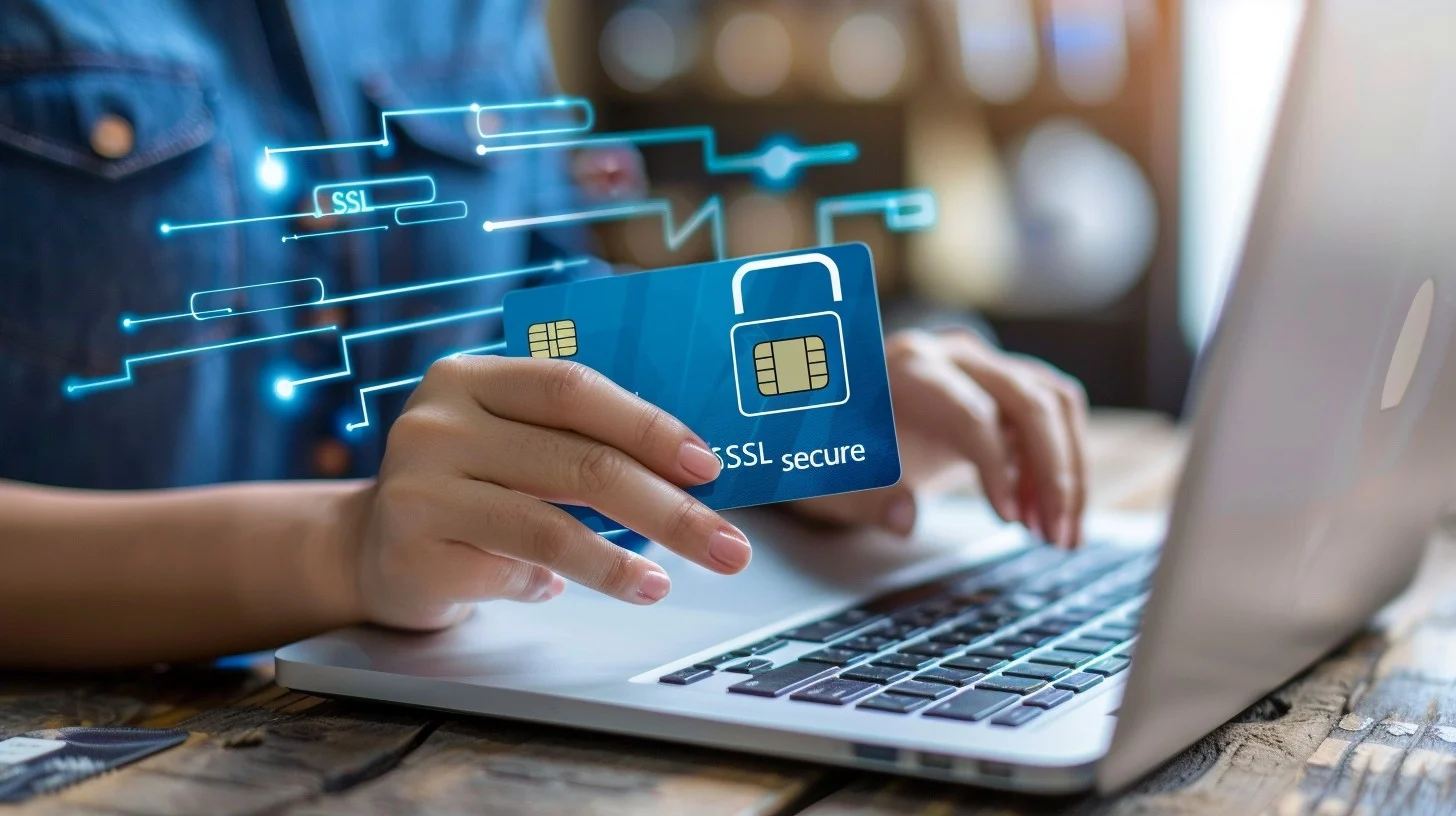Imagine checking your mail and finding a bill for a credit card you never applied for. Or watching your credit score drop for no reason. If someone opens a credit card in your name, the consequences can be stressful and long-lasting—unless you act fast.
This is a growing form of identity theft where a fraudster uses your personal details—like your Social Security number and birthdate—to get credit in your name. Understanding what happens next, the risks involved, and your step-by-step recovery plan can help you protect your financial future.
Why Would Someone Open a Credit Card in Your Name?
Criminals steal personal information through data breaches, phishing scams, mail theft, or even by exploiting lapses in your online privacy. Sometimes, the culprit may even be a family member with access to your details.
Once they have the basics, they can fill out a credit card application, rack up charges, and leave you with the mess. These unauthorized actions can take months to detect if you’re not paying close attention.
Signs That Someone Opened a Credit Card in Your Name
Acting fast is crucial—but first, you have to spot the problem. Here are warning signs to look out for:
- Unexpected bills or statements for accounts you didn’t open
- Calls from debt collectors about debts you know nothing about
- A sudden drop in your credit score
- Credit inquiries or new accounts listed on your credit report
- Denial of credit applications for reasons that don’t make sense
If you see any of these, don’t ignore them. They’re often the first clues that your identity is being misused.
Immediate Consequences for Your Credit and Finances
When someone opens a credit card in your name, the financial and emotional fallout can be huge:
1. Damaged Credit Score
New credit accounts hurt your credit history. If the thief maxes out the card or misses payments, your credit score can plummet, impacting your ability to rent apartments, get loans, or secure good interest rates.
2. Debt and Collection Notices
Fraudsters rarely pay the bills. As a result, you could start receiving past-due notices and even harassment from debt collectors. Ignoring these can result in legal headaches or wage garnishments if not quickly addressed.
3. Difficulty Getting Credit
With a marred credit record and unpaid debt associated with your name, lenders may deny your credit applications, or you might end up with less favorable terms.
4. Emotional Stress
Dealing with identity theft can be overwhelming and time-consuming. Many victims report feeling violated, angry, and anxious about their financial security in the future.
What Should You Do If Someone Opens a Credit Card in Your Name?
When you realize a credit card has been fraudulently opened in your name, take these steps right away:
1. Contact the Credit Card Issuer’s Fraud Department
Let them know you’re an identity theft victim. Request that they freeze or close the fraudulent account immediately. Take note of whom you spoke to and when for your records.
2. Check Your Credit Reports
Request free copies of your credit report from all major bureaus. Look for any unfamiliar accounts or activity, then file disputes for any errors or fraud.
3. Report the Identity Theft
File a report with the Federal Trade Commission (FTC) via IdentityTheft.gov. You’ll receive an Identity Theft Report, which serves as official documentation and helps in the recovery process. For major fraud, file a police report as well.
4. Place a Fraud Alert or Freeze on Your Credit
Request a fraud alert with one of the major bureaus, who will alert the others. For even higher security, place a credit freeze, which stops new credit from being issued in your name without your permission.
5. Dispute Errors and Follow Up
Work with the credit bureaus and the credit card issuer to have fraudulent accounts and negative marks removed from your credit report.
6. Change Your Passwords
Update logins for all financial accounts and email addresses. Use complex, unique passwords and enable two-factor authentication to fortify your online presence.
7. Gather Documentation
Keep copies of everything: police reports, credit bureau correspondence, statements, and names of customer service representatives you deal with.
The Lasting Effects of Credit Card Fraud
Many people believe fixing identity theft is as simple as making a phone call. The truth is, the damage can linger for months—or years.
Long-term impacts include:
- Extended decline in credit score
- Debt collection calls and legal action
- Problems obtaining loans, mortgages, or even jobs
- Ongoing emotional and psychological stress
Stay vigilant and check your credit reports regularly, even after the immediate incident is resolved.
Preventing Someone from Opening a Credit Card in Your Name
While identity theft isn’t always avoidable, you can significantly lower your risk with a few best practices:
Personal Protection Tips
- Shred sensitive documents before discarding
- Lock your mailbox to prevent mail theft
- Limit the number of cards you carry and keep others in a secure place
- Sign new cards immediately and destroy expired ones
Online Security Measures
- Never share credit card or personal details over email, text, or phone unless you initiated the contact
- Always use “https” websites for online purchases
- Change passwords frequently, use a password manager, and enable account alerts for every transaction
Behavioral Awareness
- Regularly review bank and credit card statements for unauthorized charges
- Beware of phishing and smishing scams; don’t click on suspicious links or open unknown attachments
- Don’t overshare personal information on social media—fraudsters can use it to bypass security questions or impersonate you
Financial Monitoring Services
Consider enrolling in identity theft protection or credit monitoring services, especially if your data has been exposed in a breach. These services can alert you about suspicious activity before it becomes a crisis.
What If the Person Is Someone You Know?
Sometimes a relative or friend, even a spouse, gets desperate and commits credit card fraud in your name. The emotional impact can be more severe, but the recovery steps remain the same: you still need to report the crime, even if it’s uncomfortable. Filing a police report and notifying credit bureaus is critical for clearing your name in the eyes of lenders and the law.
Frequently Asked Questions
Are You Liable for Charges from a Fraudulent Credit Card Account?
Generally, you’re not responsible for unauthorized charges if you report the fraud quickly. Most banks have zero-liability policies for verified identity theft. However, if you delay, clearing your name gets harder, and you may face temporary liability for the debts.
Can Credit Card Fraud Affect My Credit Score?
Absolutely. Any unpaid balances or missed payments on fraudulent accounts negatively impact your credit. The longer it goes undetected, the greater the harm to your score and reputation.
Can You Recover Financially After Credit Card Fraud?
Yes, but the process can take time and patience. You’ll need to clean up your credit reports, work with financial institutions, and possibly provide proof of the fraud to lenders.
Conclusion: Act Fast, Stay Safe, and Protect Your Identity
If someone opens a credit card in your name, it’s a serious matter—but not the end of your financial stability. Acting quickly limits the damage, clears your name, and helps you regain control over your credit life.
Stay proactive: monitor your accounts, secure your personal information, and know the warning signs. Your best defense against identity theft is awareness, rapid response, and ongoing vigilance.
Take Charge of Your Credit Health Today!
Don’t wait until you become a victim. Start monitoring your credit, update your online security, and stay alert to protect your financial future. If you suspect fraud, act immediately—the sooner you respond, the sooner you can restore your peace of mind. Your personal information is valuable—guard it with care!






